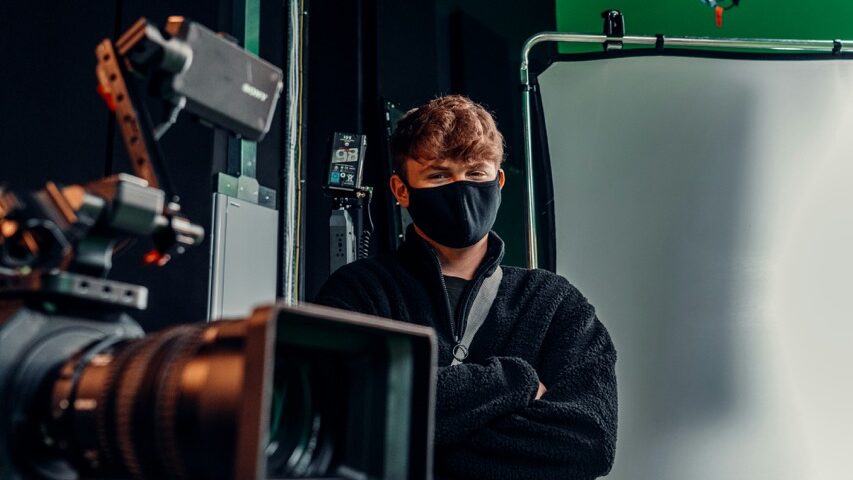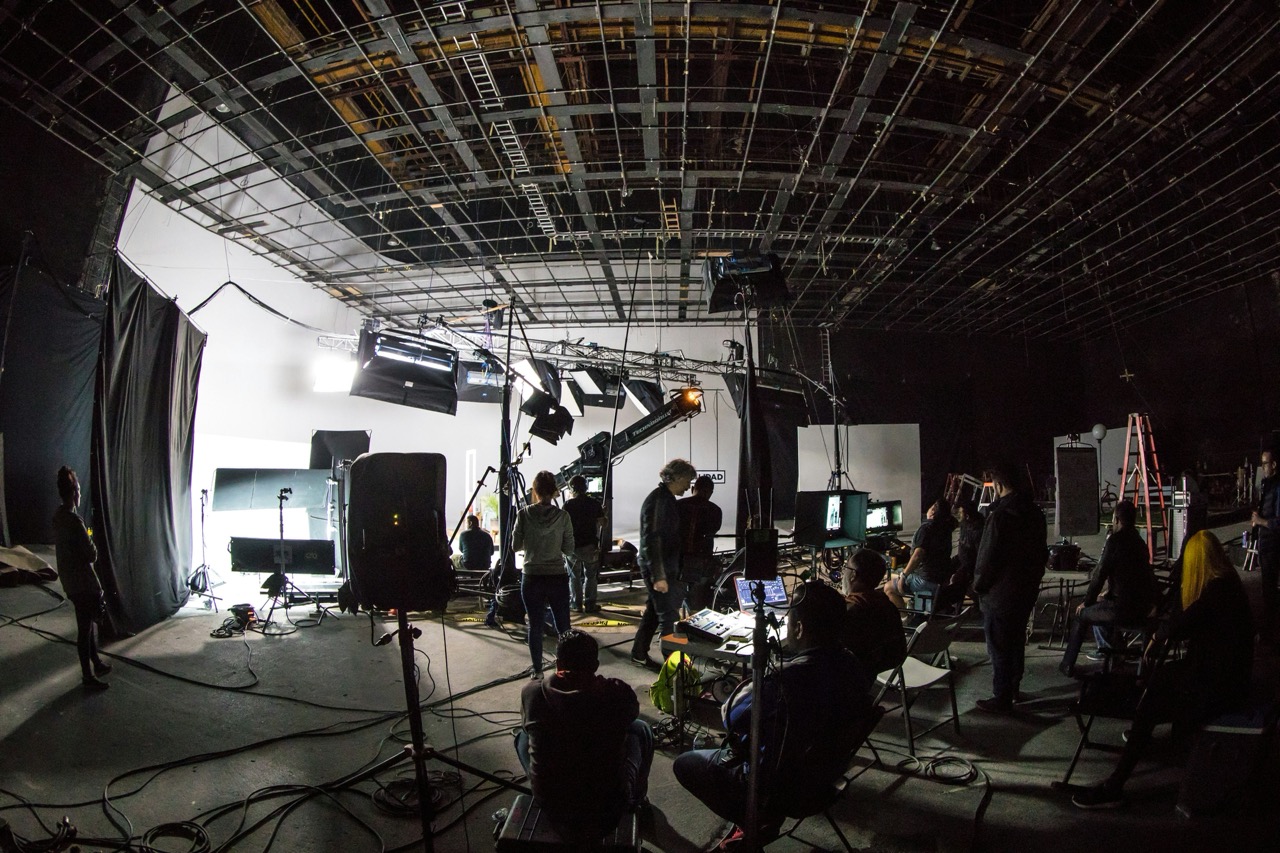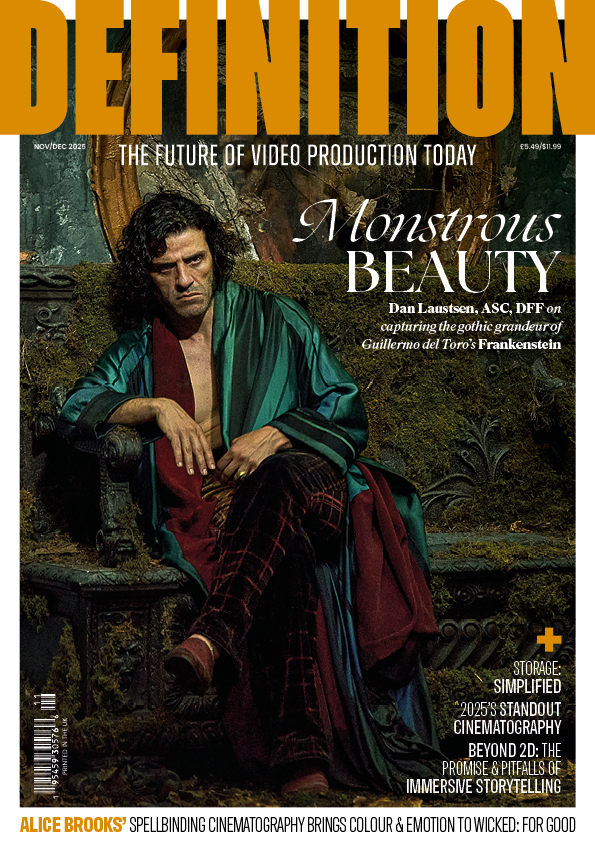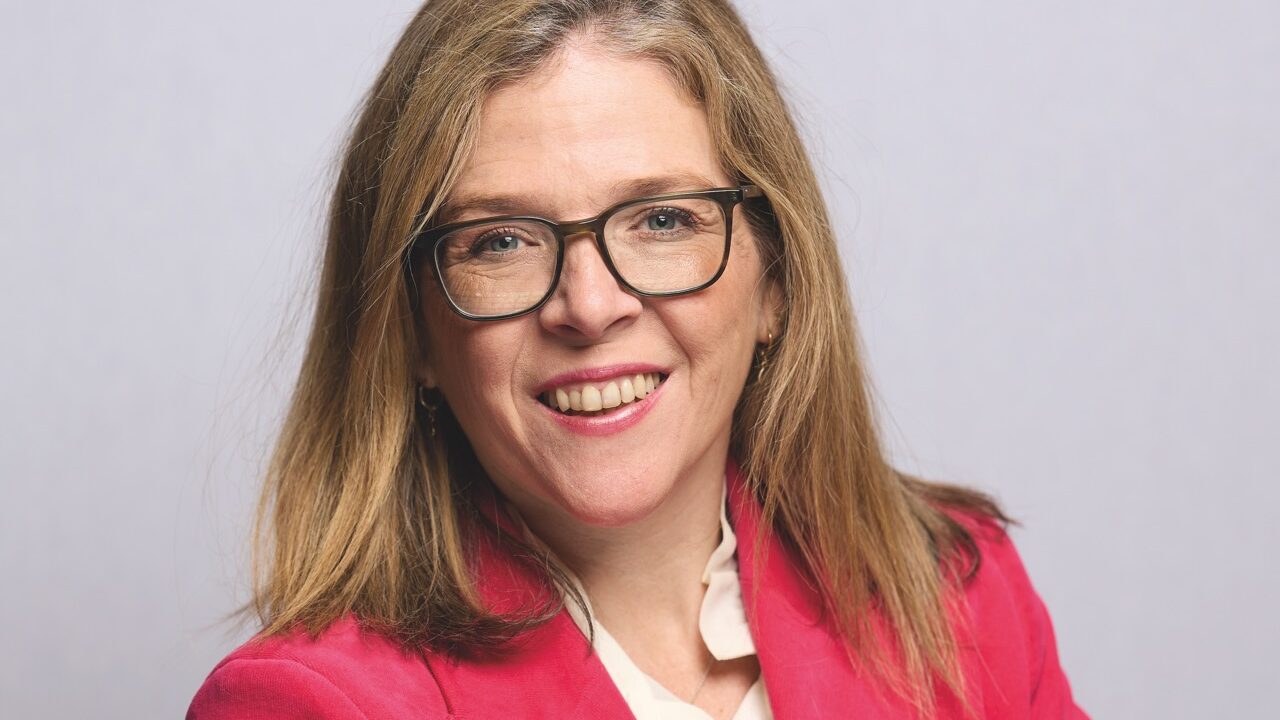
Fireside Chat: Laura Mansfield of ScreenSkills
Posted on Nov 7, 2025 by Admin
With a career that spans producer, company founder, creative director and CEO of ScreenSkills, Laura Mansfield brings a deep understanding of the opportunities and challenges facing the UK screen industries. As the sector navigates disruption, she’s championing the skills and diversity needed to secure its future
Interview Nicola Foley
Definition: From your vantage point, how healthy are the UK screen industries right now?
Laura Mansfield: It’s a time of change and challenge but also opportunity. It’s fantastic that the government has recognised the importance of the creative and screen industries in the Sector Plan and the Industrial Strategy, however there are very real challenges posed by factors impacting the screen industries at the same time. Changing viewing habits, a fast-changing advertising market and acceleration of AI, which is moving faster than regulation or policies can manage, are all examples. This can have an impact on the resilience of the workforce who are mostly freelance. They have already weathered some very bruising changes: from the Covid-19 shutdown to the sudden upswing in work – people were promoted into positions they might not have been ready for – and the ripple effect of the writers’ strike where work suddenly stopped for many of them.
Our recent Sizing Up report, published in partnership with 4Skills, showed that 65% of freelancers have found it hard to find work in the past year and there is a growing degree of underutilisation of the workforce. Supporting more consistent and sustainable growth in the sector is the real goal. That will enable people to build long-term careers – and support indigenous companies right across the UK too.
DEF: You’ve worn many hats in your career. Looking back, which moments or shifts stand out most?
LM: The theme of it all is continual change. We are an industry that is underpinned by three consistent elements – people, ideas and technology. And we’re also an industry that’s really good at leading through technology and change.
Personally, and I’m showing my age, the moments that stand out to me were as a twentysomething indie founder in my first ever office admiring our blue bubble back iMac computers, which we thought were the most high-tech things ever. They’re now in the Design Museum! I will always remember Richard Watsham, now an inspiring industry leader, showing me and my co-founder Helen Veale what you could do with this cool new search engine he thought we should know about, Google! I also have vivid memories of seeing Twitter and YouTube for the first time, and feeling that things would shift forever. We’re now in this space again with the exponential speed generative AI is moving at. How we as an industry balance embracing the potential it offers, while protecting our artists, creators and IP generators, will define us as an industry for a generation.
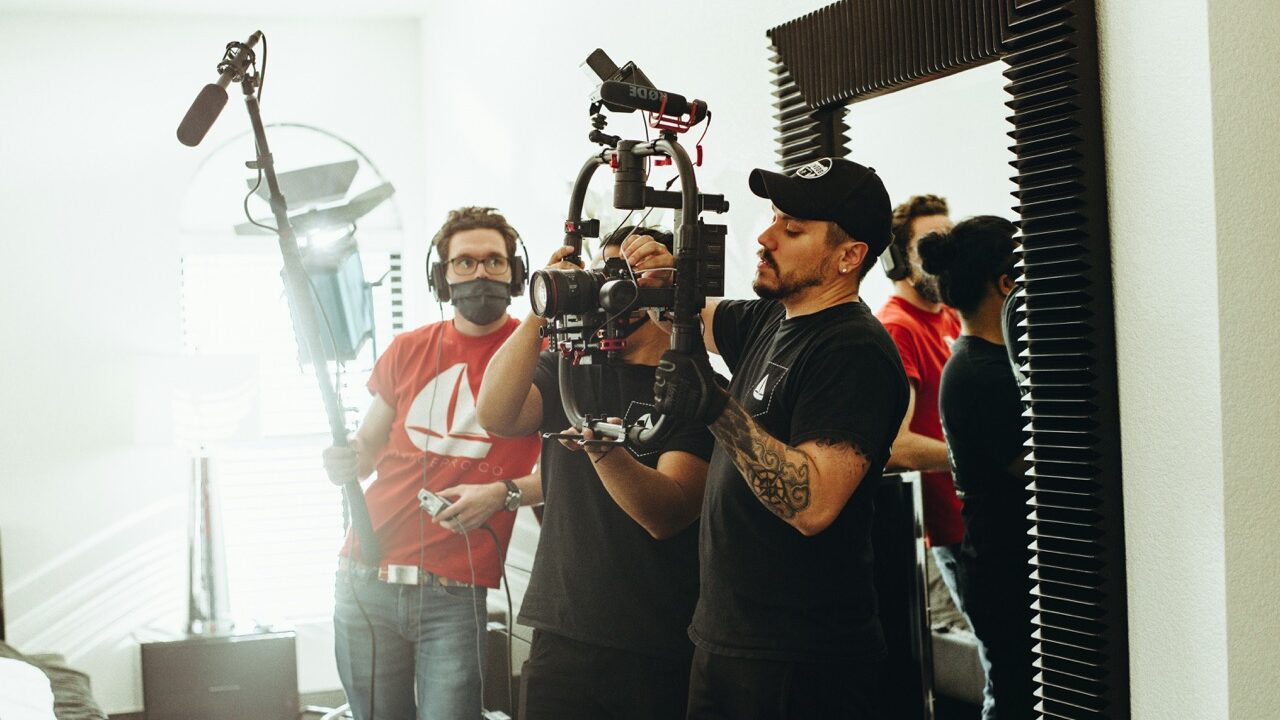
DEF: What role has mentorship played in your own career journey, and what role do you think it can play in shaping the future of the industry?
LM: Mentorship, coaching and simply reaching out to others for support is so important in every career, and screen is absolutely a team sport. People will have many mentors over a career – formal and informal. I certainly have had many different people who have both challenged and encouraged me to help shape my own career, style and approach.
I believe in the power of mentorship – at my previous company, Tin Roof Media, I championed setting up a group-wide mentorship scheme across Outline Productions and Blink Films – and we used the free downloadable toolkit from ScreenSkills, which is a really empowering resource for a small indie.
Coaching, which is different and permits the person being coached to formulate their own direction, is very valuable. ScreenSkills’ Unscripted TV Fund now delivers a substantial programme, with freelancers able to apply for free coaching ranging from one-offs to six-month programmes. The feedback from this can be transformational.
Building a career in the screen industries is a rewarding and often very challenging thing. So whether you seek out an official mentor, like the ones we offer with HETV and Film Skills Funds, Make A Move or Leaders of Tomorrow programmes, or just a few words of encouragement from a trainer on a course – the more people feel it’s OK to ask for support or show vulnerability, the more room for personal and professional growth there is.
DEF: ScreenSkills plays a pivotal role in shaping and nurturing the UK’s screen talent pipeline. What are the most urgent skills gaps today, and how can they best be addressed?
LM: I’m proud that ScreenSkills has such reach: last year we directly supported nearly 30,000 beneficiaries who used our programmes, training, bursaries and e-learning, and 67% of them were outside London. That makes our national role really important.
In terms of skills needs, ScreenSkills has commissioned two new pieces of research to come out early 2026 and offer real, granular-level information for the industry to plan around. Our research work will highlight skills gaps and shortages both UK wide and with regional variations.
The most urgent skills needs now, and for the future, continue to be in building management, project management and strong leadership skills, as well as support around artificial intelligence. Working in the screen industries is a team activity and running an effective team doesn’t happen by magic.
Getting training and feedback can help individuals build their skillsets and not just do what they have observed others doing. From our last HETV skills gaps report, specific needs were business and management skills, production accountants and digital skills. And certainly, when you look at the Creative PEC digital research, it reiterated what we’d learned: building digital skills across the sector is crucial.
Leadership and management skills – that’s how you create systemic change. Embedding positive recruitment culture into the industry, changing listening and feedback behaviours and so on. And related to this, but relevant to the whole workforce, is learning to tackle bullying and harassment. That’s why this is one of the core online modules of our free ScreenSkills Training Passport. We’re on target to see 12,000 people across the industry complete their passports this year. That means thousands of people with the vocabulary and understanding that is needed to tackle and deal with challenging situations.
We’re offering regular AI webinars, which have seen huge demand and hundreds of people attending them to start to demystify the area, which many freelancers in particular are looking for help with.
DEF: The industry talks a lot about ’breaking in’, but being able to sustain a long-term career can be just as challenging. How can the sector support professionals not just at the entry level but throughout their careers?
LM: It’s like a leaky bucket. There is no point pouring water in if it just comes out of a hole in the bottom. Clearly, it’s important to fix the bucket first. It’s essential we support young people who might not consider a career in our industry to learn about screen and creative careers, as well as those who might transfer from other industrial sectors. We have got a diversity problem and we won’t fix that without new entrants. But there’s no point bringing people in and losing them.
At a time of rapid technological change, we need to support mid- and senior-level talent to build their skills and remain resilient and adaptable. We consulted 1600 people across the industry last year to develop our five-year strategy and the feedback clearly pointed to a need for support mid level. Across ScreenSkills and all of the skills funds, we’ve increased investment in mid and senior levels via development programmes like Make a Move, Leaders of Tomorrow, Unscripted TV and Series Producer, among others – and ensured bursaries also target this level.
DEF: Diversity and inclusion rightly remain key conversations in the industry. Where have you seen progress that gives you hope, and where is change still too slow?
LM: I’m an eternal optimist, and there’s great work going on across the industry to make change, but change is far too slow. Our Sizing Up research demonstrates that there’s still a long way to go, especially when it comes to leadership positions for those from marginalised backgrounds – particularly women, disabled people and those from working-class or ethnic minority backgrounds. When it comes to ethnic diversity, this is variable within the industry itself – so some departments, such as technical and craft, are more representative compared to subsectors such as editorial, post-production or production management.
For example, just 12% of executive and corporate roles were held by those from ethnic minority backgrounds in 2024. I’m married to a south-Asian British director and I’ve seen first-hand the barriers he and so many others face in their careers. The insidiousness of unconscious bias to me is what we need to challenge. And the way you do that is by ensuring that there are lived diverse experiences around every board table, in every single team and company – not just one. A token person isn’t enough to make systemic change. Why should people from a diverse background have to carry so much expectation alone?
ScreenSkills is committed to improving diversity and inclusivity in the industry. We’ve put it at the heart of our five-year strategy. We can support meaningful change, whether that’s via our initiatives such as our Film Skills Fund Film Forward programme, which supports people from deaf, disabled and neurodiverse backgrounds to gain roles in post-production, or by the free training we offer the broader workforce in unconscious bias, which is one of the modules in our Training Passport.
I’m pleased, for example, with our recent Trainee Finder stats. Last year the programme – which runs high-end TV, film and children’s – had 72% out of London, 34% minority ethnic and a 24% disabled cohort, which is excellent and necessarily over indexing to address underrepresented groups.
Ultimately, we want more people hired into senior roles where they can influence culture. Hiring practices need to change with more advertising for roles and less closed recruitment. To do that, organisations need more time. Last-minute commissioning has a direct impact on the diversity of the teams that organisations recruit. Each part of the industry needs to take responsibility for changing what they do so that the industry can change for good.
One of the success stories has been the TV industry coming together around TAP (the TV Access Project), which we’re proud to be a part of. It was stimulated by Jack Thorne’s Edinburgh speech, focused on improving access and inclusion for deaf, disabled and neurodivergent people. Work has been undertaken to make sets and offices more accessible and promote greater understanding of hidden disabilities. ScreenSkills hosts the TAP employment resources hub on our website as well as new skills checklists and job profiles for a role called access coordinator. This is a growing job role that is responsible for ensuring productions are accessible.
DEF: Technology is changing so quickly, it’s hard to know what the future will look like. How do you think AI and other innovations will change the skills the industry needs, and what does that mean for those building careers?
LM: What we do know is that change is inevitable and that technology will continue to grow and develop at faster and faster speeds; but also that problem solving, teamwork and creative ideation will always be important. Right now, it’s important for each individual to take personal responsibility as much as they can for their own career – start playing around with AI, read everything you have time to (while taking time out to look after yourself) and accept that you can’t control everything. For example, we know social media and relationships with fans are increasingly important, along with transferrable skills – project management, communication, digital skills. So these are muscles everyone can flex. There are amazing free resources available on screenskills.com, so do sign up to our newsletters and socials because there is so much on offer; but also via organisations like Prime Video Pathway, BFI Skills Cluster, RTS, UK Screen Alliance and the NFTS.
DEF: If the UK screen industries are going to be a global leader in the next ten years, what must we get right – and what’s standing in the way?
LM: First of all, we need to recognise that we are already a world leader. Now we need to stay there and seek to grow. We are world-class in our on-screen, off-screen craft skills, crew, heads of department, production teams, imagination and IP creation. We have incredible people here. There is a reason the UK not only attracts so much inward investment, but also that our original unscripted formats, for example, are world leading. We really are excellent.
To grow, we need not only continued investment in our indies, IP creation and infrastructure, but also our workforce. It is great that the government have recognised the central importance of skills and people for growth. We need collectively to support people who have built skills to continue to develop their learning, to support greater diversity and enable more consistent, sustainable careers. The way to do that is to support people to be more flexible, more agile and learn to lead and manage others better. The goal is to avoid boom and bust and instead get to steady long-term growth.
Join us for another fireside chat in this interview with Ed Talfan from Severn Screen.
This article appears in the November/December 2025 issue of Definition


